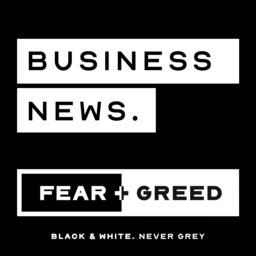Interview: Why this startup turned down a monster order in its first year
Around 66% of branded merchandise ends up in landfill. If you're not careful, it can become an expensive way to get a message out there, with a massive impact on the environment.
That's why branded merchandise company Mercha turned down an order for 250,000 plastic whistles in the company's early days.
Ben Read, CEO of Mercha, joins Sean Aylmer in the studio to talk about the role of branded merch in marketing, and why the partners you choose really does matter.
Mercha is a partner of Fear & Greed
 FEAR & GREED | Business News
FEAR & GREED | Business News


